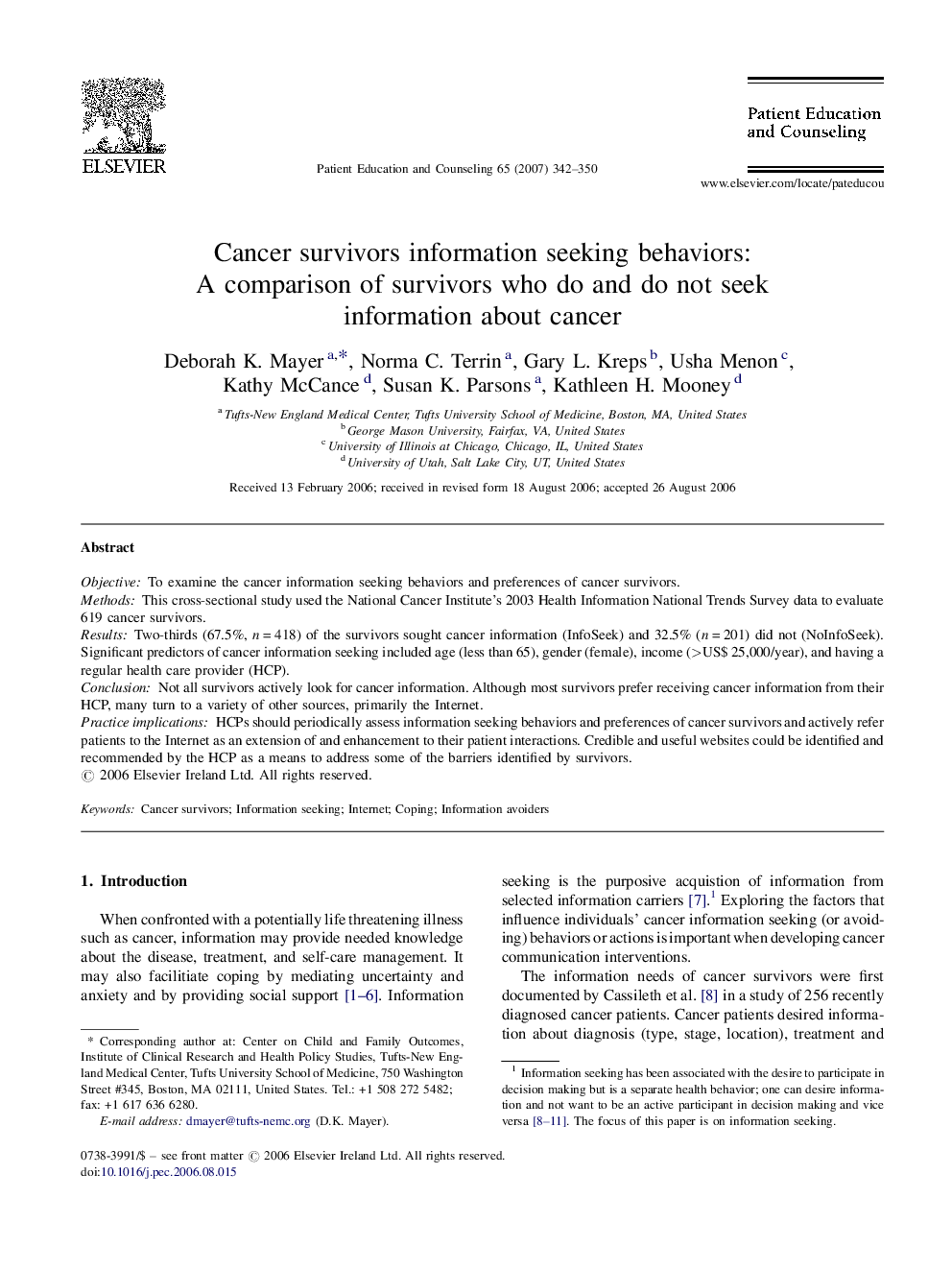| Article ID | Journal | Published Year | Pages | File Type |
|---|---|---|---|---|
| 3815295 | Patient Education and Counseling | 2007 | 9 Pages |
ObjectiveTo examine the cancer information seeking behaviors and preferences of cancer survivors.MethodsThis cross-sectional study used the National Cancer Institute's 2003 Health Information National Trends Survey data to evaluate 619 cancer survivors.ResultsTwo-thirds (67.5%, n = 418) of the survivors sought cancer information (InfoSeek) and 32.5% (n = 201) did not (NoInfoSeek). Significant predictors of cancer information seeking included age (less than 65), gender (female), income (>US$ 25,000/year), and having a regular health care provider (HCP).ConclusionNot all survivors actively look for cancer information. Although most survivors prefer receiving cancer information from their HCP, many turn to a variety of other sources, primarily the Internet.Practice implicationsHCPs should periodically assess information seeking behaviors and preferences of cancer survivors and actively refer patients to the Internet as an extension of and enhancement to their patient interactions. Credible and useful websites could be identified and recommended by the HCP as a means to address some of the barriers identified by survivors.
